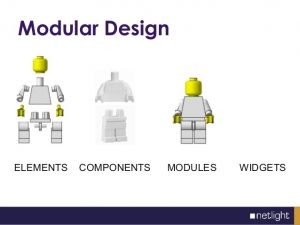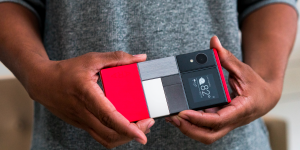In my last blog I talked about the importance of designing better products and how biomimicry can help us accomplish that. Here, I’ll be looking into another aspect of making better everyday products. As more companies are transitioning from a cradle to grave mentality towards a cradle to cradle line of operations the importance of modular design as a driver for sustainability continues to grow. With our current ecological footprint, we need to find ways to minimize our waste and to incorporate processes in our systems that finds new value in other outputs from our supply chain that would normally be thrown out. This shift towards the circular economy is a trend that can not be ignored any longer. It is crucial not just to improve on a company’s environmental impact but to facilitate a culture of innovation.
A look at Interface’s history and the So Right, So Smart video can provide us with convincing evidence of the benefits of this modular mindset. Instead of producing entire rolls of carpets, Interface revolutionized the industry by producing tiles that could be combined together.In doing so they not only reduced what was going to the landfill, they were able to significantly reduce their costs by removing the excess trimmings that would be cutoff when fitting the carpet to a specific project. Efficiency was improved as installation speeds increased and the tiles became universal to fit any pattern layout.

Modular design has also changed how consumers access technology that would normally be beyond financial reach. The newest versions of smart phones like the iPhone Xand Samsung Galaxy 8 can cost upwards of a thousand dollars and traditionally only last two to three years. Something so ubiquitous and accessible is a significant investment for even university students. Unfortunately, this high price point acts like a barrier for the underprivileged and its weird to think about how many people don’t have one of the most basic items as a result.
Essential is a company leading the way by utilizing a modular design to change the way we buy phones. The base model of the phone comes at a reasonable priced figure and provides all the basics someone is looking for in a phone. However, these same customers are free to purchase additional “mods” that augment the phone. This ability to personalize a custom phone to meet individual needs at whatever price point they can afford is a strategy that will help to break down social barriers. This strategy is a unique twist on the good, better, best business model. When ever you walk into a store you’ll often notice that the store will have 3 different variations or brands of the exact same item but with 3 different levels of prices. The lowest priced brand is by all accounts a good product and does the job when solving a customer’s needs. The middle one is of a little better quality. While the highest priced brand goes the extra mile and is generally considered the best of the three. Why doesn’t the store just pick one of these brands to put on their shelves? They decide to carry all the 3 brands of the product so that customers can have the option to choose the product that fits within their budget. By choosing a modular design, Essential is able to target all 3 of the good, better, best segments at the same time. The potential of modular design extends far beyond profits and expanding market share. As we can see with these phones, modular design can help to tackle social issues by making newer technologies and products more accessible for everyone.